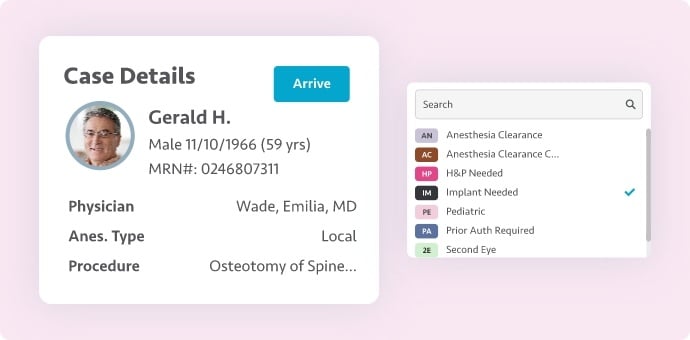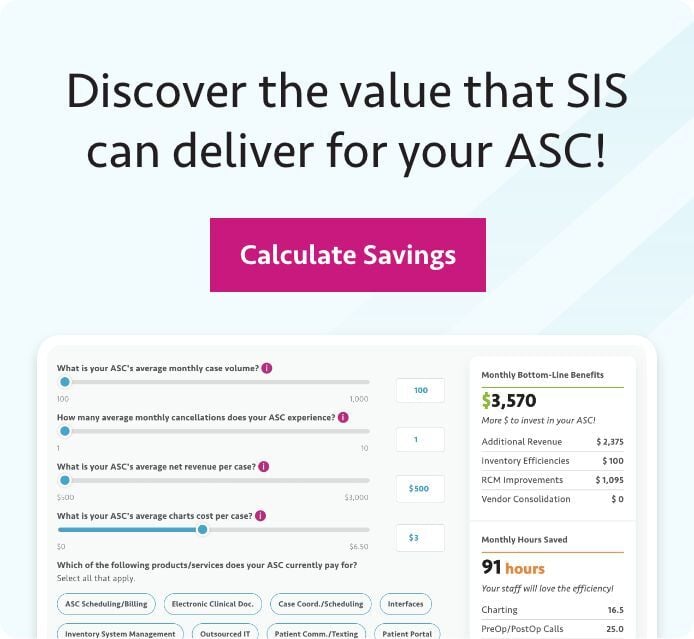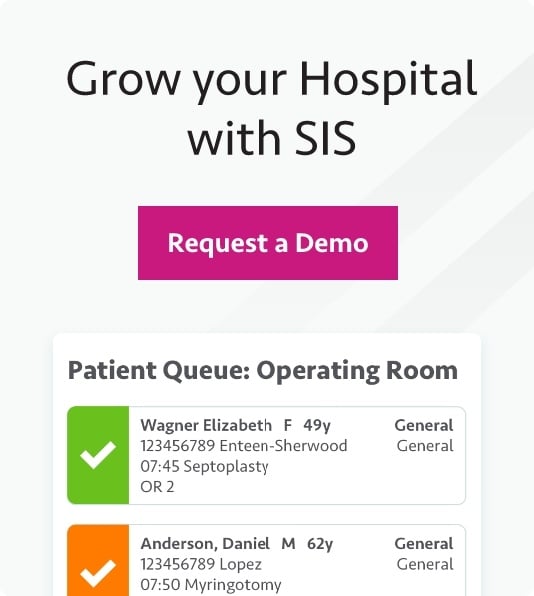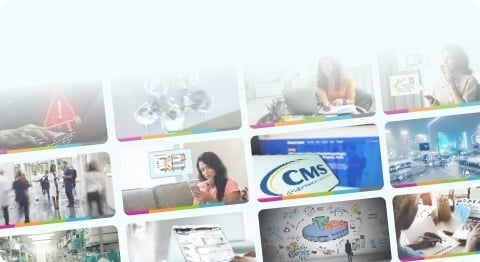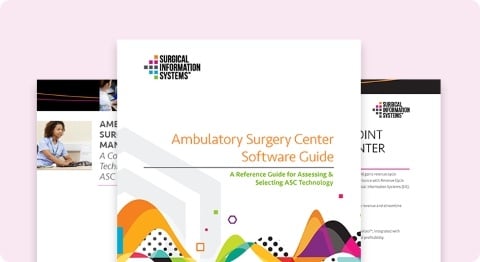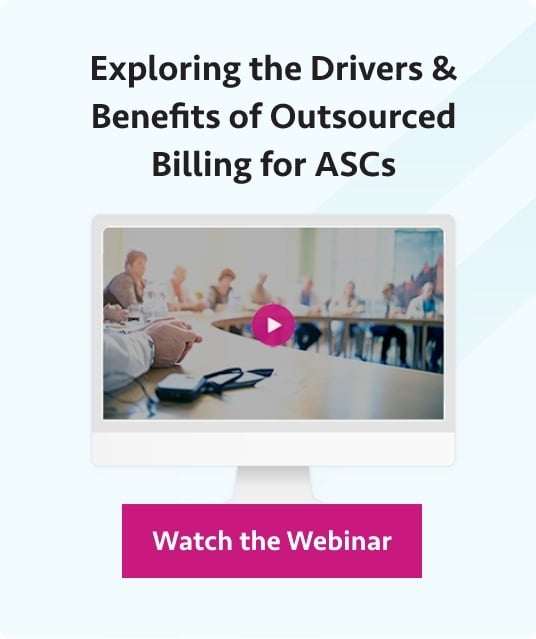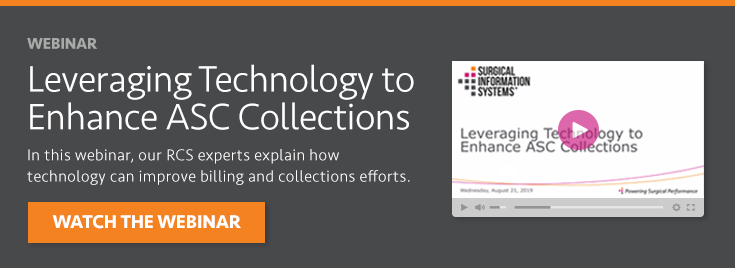
Q&A with Jho Outlaw and Jessica Nelson
Following a recent webinar presentation on "Leveraging Technology to Enhance ASC Collections," Jho Outlaw, senior vice president of Revenue Cycle Services for SIS, and Jessica Nelson, director of Revenue Cycle Services for SIS, fielded questions from participants. Here are those questions, along with Outlaw's and Nelson's responses, summarized for readability.
Q: Sometimes we correct claims in our clearinghouse software rather than on the original claim as doing so is faster. Is it okay for us to take this approach?
A: This is something a lot of ASCs do. The scenario usually looks like this: A claim leaves the host system and is moved to a clearinghouse, where it is rejected. The biller looks at the claim and determines there's an incorrect code or modifier and then proceeds to correct it in the clearinghouse because that's the simplest step to fix the claim.
Unfortunately, that can lead to problems. You need a consistent process of going back to correct the host system. Let's say a few months down the road, you find yourself being audited for that account. Since the host system is generally considered the record of documentation, staff will generally go back to it to prep a claim. What happens when the payer notices that what is in the host system does not match what you submitted? Now you need to go to the clearinghouse and see what was actually submitted.
Our mantra is to ensure the information is correct in both systems. Ideally, correct it in your host system and then resubmit the claim, but if you at least correct it in both so they match, you will be in a good place.
Q: If an ASC sees its performance decline as it implements an electronic medical record (EMR) system, how can you bring performance back in line?
A: If you've gone from paper to electronic and performance declines, look closely at which area(s) of performance is declining. For example, it might be taking you longer to get bills out the door because physicians are delaying using the EMR and now your processes aren't working as well as they used to. In this instance, explain to the physicians how many claims are unbilled compared to before the EMR and the importance of them using the technology from a financial perspective. Use data to support your arguments.
When you implement new technology, consider it an opportunity to take a step back and determine what your ASC can do differently that will hopefully improve performance. The important part is to monitor your performance and be able to quickly identify when something declines, determine the root cause(s), and implement fixes.
Q: Is there a way to set edits within the average clearinghouse to avoid sending claims out incorrectly?
A: A lot of the host systems will allow you to enter edits. For example, let's say account numbers associated with XYZ payer always have three alphas before it. You can come up with a rule that says if XYZ is the payer, then the patient account number must have a three-letter alpha prefix. That's an opportunity to use your host software.
One thing we've been doing with our clearinghouse is implementing edits that say, for example, if this CPT code and this CPT code are paired together, reject it because they should be bundled, or if this CPT code isn't paired with this CPT code, then reject it.
There are opportunities to use technology to complete edits. When you consistently get the same rejection or find a few claims that made it to the clearinghouse and were paid incorrectly because there were mistakes on the claim, think about how you can build edits in your host system or clearinghouse to avoid repeating errors.
Q: How do we get online bill pay?
A: There are a few options. You can go to your bank and talk to it about what it offers. You can usually set up online bill pay through a clearinghouse. If you use a centralized business office or outsourced opportunity like SIS Revenue Cycle Services, your partner will often bring that offering to you.
Q: Is texting patients legal?
A: The short answer: Yes. You do need to receive permission from patients to do so. You will want to be very careful that you do not text patients any protected health information.
SIS Revenue Cycle Services texts our ASC clients' patients. The way that we accomplish texting routinely and properly is by working with a technology that addresses the legal aspects. Patients can opt in to receive text messages or opt out as they're receiving them. Another failproof component is to include in the paperwork that patients review and sign, as part of undergoing surgery at your center, that they acknowledge and agree to receive and respond to text messages from the ASC.
Q: One of my referring doctors doesn't want me to collect payments up front. He says it will cause cancellations. Is this allowed?
A: "Allowed" is an interesting word. You need to be very careful of treating any one physician's patients different than you treat all the rest of your patients. ASCs are supposed to consistently apply the same billing procedures and processes for all patients, especially if they accept reimbursement from the federal government, e.g., Medicare, state Medicaid programs, TRICARE.
Furthermore, credentialing agencies and payers often set forth expectations that ASCs provide financial counseling to patients and do not surprise them with bills. If patients are opting out of surgery as a result of a collections effort, that likely means you did not effectively inform them of their financial responsibility when scheduling the surgery and are now "surprising" them with a bill. I would strongly recommend shying away from such a practice.




